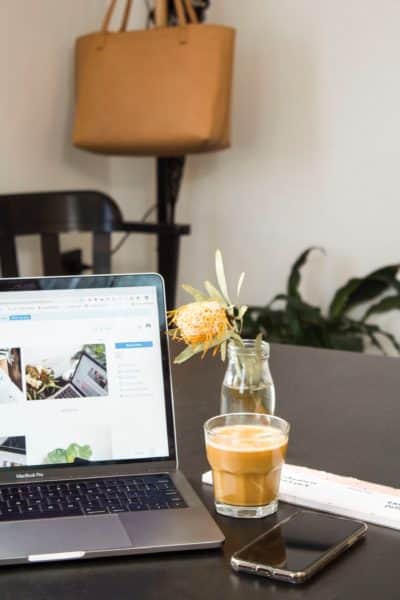So you want to become your own boss and grow a successful online e-commerce business! Great, but it’s easier said than done. Many entrepreneurs struggle to get their businesses off the ground, and only a few can turn their ideas into successful and profitable businesses. Here’s how to make sure you’re one of the lucky ones.
IMAGE: UNSPLASH
Should You Sell Online?
E-commerce is a relatively new development in the business world and one that comes with its challenges and benefits. Brick and mortar stores have much higher overhead costs, as you would need to pay for the physical space as well as any staff members.
E-commerce, on the other hand, can be much cheaper to launch as your most substantial costs will be your website and related software, and shipping materials. However, many shoppers still prefer in-person shopping.
That trend is slowly changing: a recent study found that two-thirds of millennials prefer online shopping. Once you’ve reviewed your options, you can decide if commerce is the best avenue for you.
Find Your Niche
There are many online businesses for you to compete with, so you need to find your niche. Instead of trying to sell everything to everyone, you should narrow down on something specific. Start by picking something based on your personal interests or business goals, and then narrow it down to be more specific.
For example, if you are interested in the cosmetics industry, you might want to narrow your niche to be all-natural beauty products. Try to find something unique to help you stand apart and choose something you are passionate about and knowledgeable about.
Source Your Products
There are two ways to get products to sell in your online store: either make them yourself or buy them elsewhere to resell. If you’re already an artisan making handmade items like soaps, jewelry, or clothing, this is an easy answer! However, making custom items can be time-consuming and potentially slow down your sales. This is why many online sellers turn to wholesale products.
You can find suppliers for items you can add to your store, either to enhance what you are already making on your own or to bring items to a different customer base. For example, your store targeting brides with handmade wedding decor can also use a jewelry wholesaler to add bridesmaids gifts to your inventory.
Find The Right E-commerce Platform
A good e-commerce platform will give you a functional website where you can easily list your items with photos and product descriptions, and provide a fast and simple checkout process for your customers. There are many platforms you might like, like Shopify, Squarespace, or Etsy.
You can find the right one for your business by exploring what they offer and what you need. For example, are you able to do your own coding? Do you want to choose your own domain name? And what can you afford at this stage of your business?
How Will You Ship Your Products?
You have your products and your platform, but how will you get them to your customers? You have a lot of shipping options to choose from and, on the plus side, you can always change your strategy later on if you find it’s not working for you. But first, you need to calculate your shipping rates. Will the customers be responsible for the full shipping cost, or will you offer a flat rate? This may depend on how much it will cost to ship your items.
Measure and weigh your products to get an accurate sense of how much they will cost to ship through your chosen provider: USPS, UPS, and DHL all offer free estimator tools on their websites you can use to see what the average shipping cost may be. You can also order free packaging from them, or order custom made branded packaging for your store.
Market Yourself
Once you’re ready to launch your store, you need to let people know about it! Start an email newsletter that customers can subscribe to from your site to market new products or announcements to them continually. You should also create a social media presence. Try to register the same name as your store on all platforms, even ones you may not plan to use immediately.
Keeping your branding consistent will help your customers find you easier! Use your social media profiles to share your products and prices and get new customers interested by using specialized hashtags. On Instagram and Facebook, you can even integrate your product catalog so people scrolling through social media can see your product details and prices right away!
If you are interested in even more business-related articles and information from us here at Bit Rebels, then we have a lot to choose from.


COMMENTS